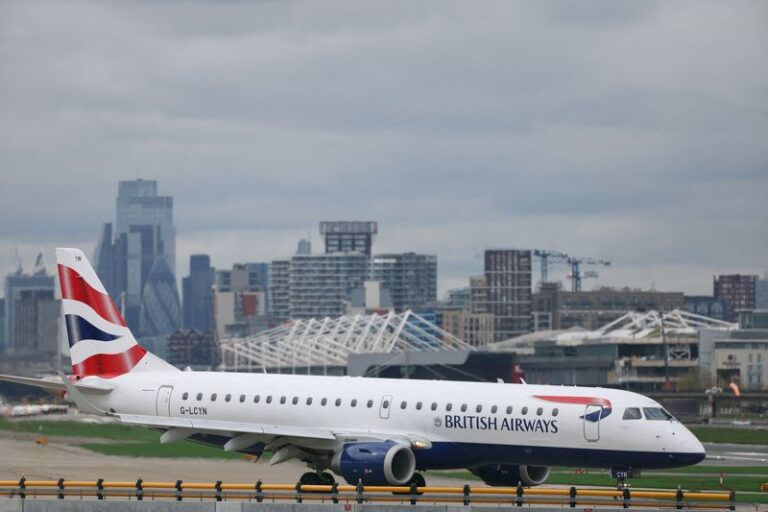By Doyinsola Oladipo
NEW YORK (Reuters) – Global business travel spending in 2023 will recover to pre-pandemic levels in North America, Latin America, the Middle East and Africa as companies resume face-to-face meetings and conferences, according to a report released on Monday by an industry association.
However, the Global Business Travel Association’s annual report also said inflation-adjusted business travel spending remains below 2019 levels and a full global recovery faces increasing challenges from geopolitical conflicts and a slower travel recovery in key markets such as China.
Overall global business travel spending in 2023 is set to increase 30% to $1.34 trillion from the previous year, but is still about 7% below pre-pandemic levels, the report said.
“We now expect to see continued solid spending growth in business travel, but at a more normal and moderate rate as the world economy returns to a more traditional cycle,” said Suzanne Neufang, the association’s chief executive.
The association estimates that spending will reach $1.48 trillion by the end of 2024, surpassing the pre-pandemic record of $1.43 trillion.
Adjusted for inflation, global business travel spending will be 22% lower in 2023 compared to 2019 levels.
The Asia-Pacific region is the fastest growing region in 2023 led by increased spending in South Korea and India, which increased by 27% and 22% respectively year-on-year.
However, the region is still lagging behind in a full recovery as business travel spending in China rose 9% year-on-year, but still lagged pre-pandemic levels.
Spending recovered to pre-pandemic levels in North America, Latin America, the Middle East and Africa.
Despite surpassing the pre-pandemic record of $346.8 billion, spending growth in North America slowed to 25% year-on-year, down from 73% the year before.
Similarly, in Western Europe, business travel spending is expected to increase by 33% in 2023 compared to 109% in 2022 when spending surged as governments eased travel restrictions. Spending in the region is 6% below pre-pandemic levels.
(Reporting by Doyinsola Oladipo in New York; Editing by Aurora Ellis)


